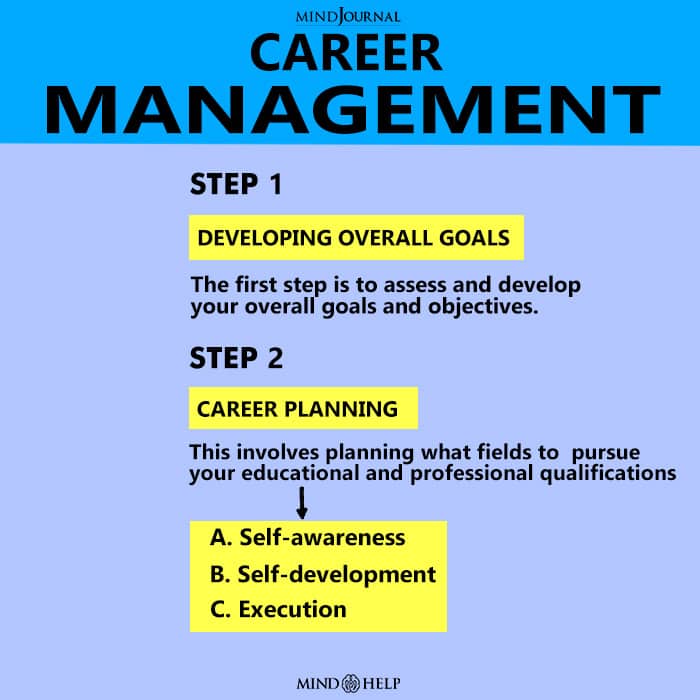Are you one of those who are wondering how to go about making a career change at 50? A midlife career change can be exciting but terrifying as well, so here are some of the things to consider as well as options you can consider.
Changing careers is always challenging. But sometimes, a change is all you need to find workplace happiness and a feeling of accomplishment. We see several people changing their careers in their 40s and 50s to find better work-life balance and more tremendous success.
The first step in a midlife career change is accepting it is possible. An average person holds 12 jobs in their lifetime – and more often than not, if you look at their journey, you’ll see that the jobs they held towards the end of their career had nothing to do with the jobs they started with.
If you establish a goal and a plan wherein you learn the relevant skills for a new career – you can switch careers successfully.
While many choose to change their jobs, most of them end up encountering common midlife career change mistakes. This article will help you by discussing the nuances of making a midlife career change, including the things to keep in mind and some jobs that are a good choice for those looking for a career change.
Things to Consider When Making A Midlife Career Change
1. Determine the Right Career Path for Yourself
When you think of making a career change, whether early or late in your working years, the first step is to determine the ideal career path. Take a career assessment test or talk to a counsellor to determine the best path based on your skills, interests, and experience. It is also a good idea to determine the objective of a career change and chart out your path based on that objective.
2. Make a Plan & Start Preparing Early
After a clear view of the path ahead, the next part is planning and preparation. Make a time-bound plan and start as soon as possible to learn the necessary skills. Focusing on planning and learning new things helps you achieve your goals. It also keeps the psychological pressure off you.
3. Make a Budget
Career change can impact many aspects of your life. Plan your finances such that you can fund your career change. You don’t need a huge fund to make a career change. You just need enough to get started. Start saving as soon as possible, and don’t be afraid to cut corners until your new career takes off.
4. Recognize Like-Minded Peers
Networking is the most critical aspect of a career change. Talking to the right people will give you valuable nuggets of learning and help you find the best opportunity based on your skills. Connect with others in the field to find opportunities to kick-start your new career.
Related: Work Infidelity: Are You Married To Your Job?
5. Find Out the Skills You Need to Learn
Find out more about the skills employers look for in your new field of work. You don’t need to return to school to get your needed skills. Get creative and find new ways to learn what you need to know. Explore options of online courses; take up an internship or part-time project in the field of your choice.
6. Update Resume
If you want to find jobs or business opportunities in a new field, your resume should highlight the skills valued in your new field rather than your past experience. Use strong headings like “technical expertise”, “business experience”, or “leadership roles” to showcase your strengths.
7. Challenge the Assumptions & Be Confident
Be prepared to let your work speak for yourself. If you are 40, 50, or even 60 years old – it doesn’t mean you cannot offer value to the company you work for.
In fact, experienced people can be more efficient and productive than younger workers. Ensure that you talk about how passionate you are about the career change and challenge their assumptions with confidence.

Related: 8 People Skills You Need To Succeed In Your Work And Relationships
Some Of The Best Midlife Career Change Jobs
1. Digital Marketing/Social Media
The digital marketing industry is thirsting for intelligent and qualified marketers. If you have worked in conventional marketing, your experience drawing attention to a brand may also be valuable for social media marketing.
2. Soft Skills Trainer/ Image Consultant
If you have spent enough time in the corporate making stellar impressions on clients and writing flawless e-mails, you could become a certified soft skills trainer. Soft skills are essential for all those starting out in the corporate and your experience may be valuable to them.
3. Web Developer
Becoming a web developer calls for technical expertise and some qualifications. But the good news is that people from all backgrounds can complete certifications and gain the skills needed to work with web development.
4. Entrepreneur
Many people who quit their day jobs start their own businesses. Entrepreneurship requires hard work and sacrifice, but the journey is empowering and liberating. Not to forget, entrepreneurial success brings substantial financial gains.
5. Project Manager
Those who have spent time working on large-scale corporate projects have valuable experience running a project from inception to delivery. Take a project management certification and opt for supervisory or strategic roles in project management.
A mid-life career change should not be motivated by a higher pay scale. In fact, you should be ready to take a pay cut if you are starting something new. A career change at this stage should be driven by passion and finding a fulfilling and empowering career.
Related: 8 Signs You Should Quit Your Job
If you have more suggestions or advice for the best midlife career change jobs, then share your thoughts in the comments below! And don’t forget to share this with someone who might be interested!
Written by: Suman Agarwal








Leave a Reply
You must be logged in to post a comment.